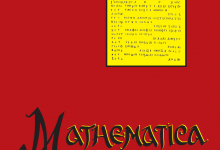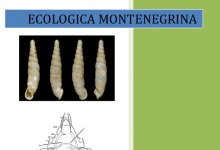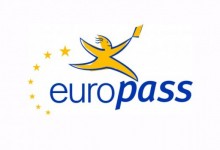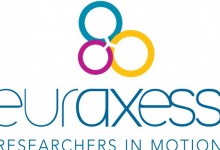Faculty of Science and Mathematics / COMPUTER SCIENCE / RAČUNARSKE NAUKE-DOKTORSKI ISPIT
| Course: | RAČUNARSKE NAUKE-DOKTORSKI ISPIT/ |
| Course ID | Course status | Semester | ECTS credits | Lessons (Lessons+Exercises+Laboratory) |
| 7790 | Obavezan | 1 | 10 | 4++0 |
| Programs | COMPUTER SCIENCE |
| Prerequisites | |
| Aims | |
| Learning outcomes | |
| Lecturer / Teaching assistant | |
| Methodology |
| Plan and program of work | |
| Preparing week | Preparation and registration of the semester |
| I week lectures | |
| I week exercises | |
| II week lectures | |
| II week exercises | |
| III week lectures | |
| III week exercises | |
| IV week lectures | |
| IV week exercises | |
| V week lectures | |
| V week exercises | |
| VI week lectures | |
| VI week exercises | |
| VII week lectures | |
| VII week exercises | |
| VIII week lectures | |
| VIII week exercises | |
| IX week lectures | |
| IX week exercises | |
| X week lectures | |
| X week exercises | |
| XI week lectures | |
| XI week exercises | |
| XII week lectures | |
| XII week exercises | |
| XIII week lectures | |
| XIII week exercises | |
| XIV week lectures | |
| XIV week exercises | |
| XV week lectures | |
| XV week exercises |
| Student workload | |
| Per week | Per semester |
| 10 credits x 40/30=13 hours and 20 minuts
4 sat(a) theoretical classes 0 sat(a) practical classes 0 excercises 9 hour(s) i 20 minuts of independent work, including consultations |
Classes and final exam:
13 hour(s) i 20 minuts x 16 =213 hour(s) i 20 minuts Necessary preparation before the beginning of the semester (administration, registration, certification): 13 hour(s) i 20 minuts x 2 =26 hour(s) i 40 minuts Total workload for the subject: 10 x 30=300 hour(s) Additional work for exam preparation in the preparing exam period, including taking the remedial exam from 0 to 30 hours (remaining time from the first two items to the total load for the item) 60 hour(s) i 0 minuts Workload structure: 213 hour(s) i 20 minuts (cources), 26 hour(s) i 40 minuts (preparation), 60 hour(s) i 0 minuts (additional work) |
| Student obligations | |
| Consultations | |
| Literature | |
| Examination methods | |
| Special remarks | |
| Comment |
| Grade: | F | E | D | C | B | A |
| Number of points | less than 50 points | greater than or equal to 50 points and less than 60 points | greater than or equal to 60 points and less than 70 points | greater than or equal to 70 points and less than 80 points | greater than or equal to 80 points and less than 90 points | greater than or equal to 90 points |
Faculty of Science and Mathematics / COMPUTER SCIENCE / MATEMATIKA- DOKTORSKI ISPIT
| Course: | MATEMATIKA- DOKTORSKI ISPIT/ |
| Course ID | Course status | Semester | ECTS credits | Lessons (Lessons+Exercises+Laboratory) |
| 7791 | Obavezan | 1 | 10 | 4++0 |
| Programs | COMPUTER SCIENCE |
| Prerequisites | Listening and taking this course is not conditional on taking other courses |
| Aims | This is a general education course for doctoral studies in computer science |
| Learning outcomes | Understanding of basic mathematical concepts used in computer science. |
| Lecturer / Teaching assistant | Darko Mitrovic |
| Methodology | Mentoring, consultations, independent study and independent creation of tasks |
| Plan and program of work | |
| Preparing week | Preparation and registration of the semester |
| I week lectures | Computability: Turing machine models of computation and Cercos thesis. The stopping problem |
| I week exercises | Computability: Turing machine models of computation and Cercos thesis. The stopping problem |
| II week lectures | Klins theorem. Parameter theorem. Recursion theorem. Fixed point theorem |
| II week exercises | Klins theorem. Parameter theorem. Recursion theorem. Fixed point theorem |
| III week lectures | Arithmetic: Arithmetization. Tarskis theorem. Godels first theorem. |
| III week exercises | Arithmetic: Arithmetization. Tarskis theorem. Godels first theorem. |
| IV week lectures | Geels second theorem. Indecisiveness |
| IV week exercises | Geels second theorem. Indecisiveness |
| V week lectures | Discrete mathematics. Theory of automata. |
| V week exercises | Discrete mathematics. Theory of automata. Algorithms in discrete mathematics |
| VI week lectures | I colloquium |
| VI week exercises | I group of homework and problems |
| VII week lectures | Recapitulation. |
| VII week exercises | Recapitulation. |
| VIII week lectures | Algorithmic problems of algebra. Agorithms in algebra and number theory |
| VIII week exercises | Algorithmic problems of algebra. Agorithms in algebra and number theory |
| IX week lectures | Calculations in analysis. Fast calculation algorithms. |
| IX week exercises | Calculations in analysis. Fast calculation algorithms. |
| X week lectures | Random number generators. Probabilistic algorithms. |
| X week exercises | Random number generators. Probabilistic algorithms. |
| XI week lectures | Computational geometry. Algorithms in geometry |
| XI week exercises | Computational geometry. Algorithms in geometry |
| XII week lectures | Combinatorial optimization algorithms. Complexity |
| XII week exercises | Combinatorial optimization algorithms. Complexity |
| XIII week lectures | Numerical methods of linear algebra. |
| XIII week exercises | Numerical methods of linear algebra. |
| XIV week lectures | Numerical methods of mathematical analysis |
| XIV week exercises | Numerical methods of mathematical analysis |
| XV week lectures | II colloquium |
| XV week exercises | II group of homework and problems |
| Student workload | Lessons and final exam: (13 hours and 20 minutes) x16=213 hours and 20 minutes Preparations: (procurement of literature, registration, certification) |
| Per week | Per semester |
| 10 credits x 40/30=13 hours and 20 minuts
4 sat(a) theoretical classes 0 sat(a) practical classes 0 excercises 9 hour(s) i 20 minuts of independent work, including consultations |
Classes and final exam:
13 hour(s) i 20 minuts x 16 =213 hour(s) i 20 minuts Necessary preparation before the beginning of the semester (administration, registration, certification): 13 hour(s) i 20 minuts x 2 =26 hour(s) i 40 minuts Total workload for the subject: 10 x 30=300 hour(s) Additional work for exam preparation in the preparing exam period, including taking the remedial exam from 0 to 30 hours (remaining time from the first two items to the total load for the item) 60 hour(s) i 0 minuts Workload structure: 213 hour(s) i 20 minuts (cources), 26 hour(s) i 40 minuts (preparation), 60 hour(s) i 0 minuts (additional work) |
| Student obligations | Students are required to participate in all forms of work |
| Consultations | Mondaz, 14:00-16:00 |
| Literature | P. Borwein: Computational excursion in analysis and number theory, Spfringer, 2002. B. Korte, J. Vzgen: Combinatorial optimization. Theory and algorithms, Springer. 2000 M. de Berg, M. van Kreveld, M. Overmars, O. Schwarkzkopf: Computational geometry, algorithms and applications, Sringer, 2000 R. Motwani, P. Raghavan: Randomized algorithms, Cambridge University press, 1995. J.P. Solovjev, V.A. Sadobnicij, E.T. Shavgulidze, V.V. Belokurov: Elliptic curves modern number theory algorithms, Moscow-Iyevsk 2003. (in Russian) |
| Examination methods | - Two groups of homework are evaluated with 20 points each - Other activities during the semester are evaluated with up to 10 points - The final exam is evaluated with 50 points |
| Special remarks | No |
| Comment | Additional information about the subject at www.ucg.ac.me |
| Grade: | F | E | D | C | B | A |
| Number of points | less than 50 points | greater than or equal to 50 points and less than 60 points | greater than or equal to 60 points and less than 70 points | greater than or equal to 70 points and less than 80 points | greater than or equal to 80 points and less than 90 points | greater than or equal to 90 points |
Faculty of Science and Mathematics / COMPUTER SCIENCE / VJEROVTNOSNA ROBOTIKA
| Course: | VJEROVTNOSNA ROBOTIKA/ |
| Course ID | Course status | Semester | ECTS credits | Lessons (Lessons+Exercises+Laboratory) |
| 14345 | Obavezan | 2 | 10 | 4++0 |
| Programs | COMPUTER SCIENCE |
| Prerequisites | |
| Aims | |
| Learning outcomes | |
| Lecturer / Teaching assistant | |
| Methodology |
| Plan and program of work | |
| Preparing week | Preparation and registration of the semester |
| I week lectures | |
| I week exercises | |
| II week lectures | |
| II week exercises | |
| III week lectures | |
| III week exercises | |
| IV week lectures | |
| IV week exercises | |
| V week lectures | |
| V week exercises | |
| VI week lectures | |
| VI week exercises | |
| VII week lectures | |
| VII week exercises | |
| VIII week lectures | |
| VIII week exercises | |
| IX week lectures | |
| IX week exercises | |
| X week lectures | |
| X week exercises | |
| XI week lectures | |
| XI week exercises | |
| XII week lectures | |
| XII week exercises | |
| XIII week lectures | |
| XIII week exercises | |
| XIV week lectures | |
| XIV week exercises | |
| XV week lectures | |
| XV week exercises |
| Student workload | |
| Per week | Per semester |
| 10 credits x 40/30=13 hours and 20 minuts
4 sat(a) theoretical classes 0 sat(a) practical classes 0 excercises 9 hour(s) i 20 minuts of independent work, including consultations |
Classes and final exam:
13 hour(s) i 20 minuts x 16 =213 hour(s) i 20 minuts Necessary preparation before the beginning of the semester (administration, registration, certification): 13 hour(s) i 20 minuts x 2 =26 hour(s) i 40 minuts Total workload for the subject: 10 x 30=300 hour(s) Additional work for exam preparation in the preparing exam period, including taking the remedial exam from 0 to 30 hours (remaining time from the first two items to the total load for the item) 60 hour(s) i 0 minuts Workload structure: 213 hour(s) i 20 minuts (cources), 26 hour(s) i 40 minuts (preparation), 60 hour(s) i 0 minuts (additional work) |
| Student obligations | |
| Consultations | |
| Literature | |
| Examination methods | |
| Special remarks | |
| Comment |
| Grade: | F | E | D | C | B | A |
| Number of points | less than 50 points | greater than or equal to 50 points and less than 60 points | greater than or equal to 60 points and less than 70 points | greater than or equal to 70 points and less than 80 points | greater than or equal to 80 points and less than 90 points | greater than or equal to 90 points |











